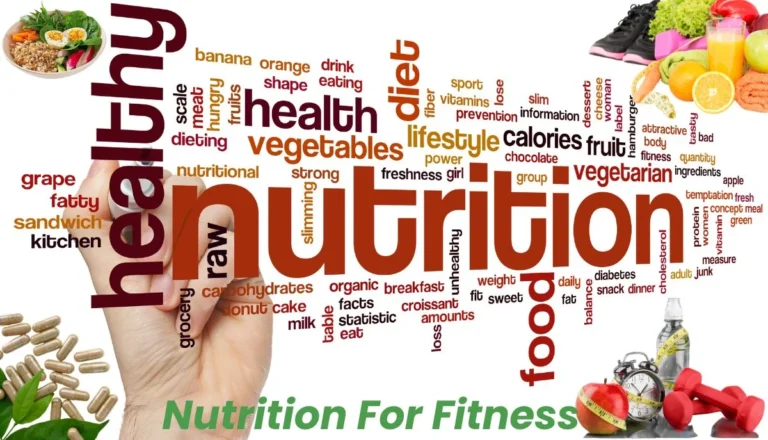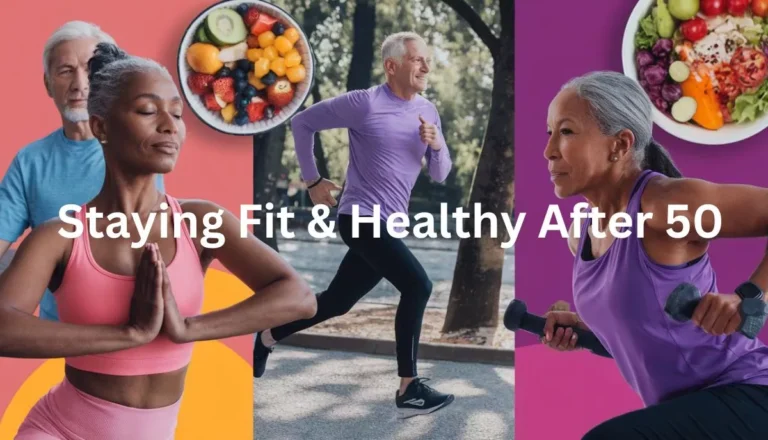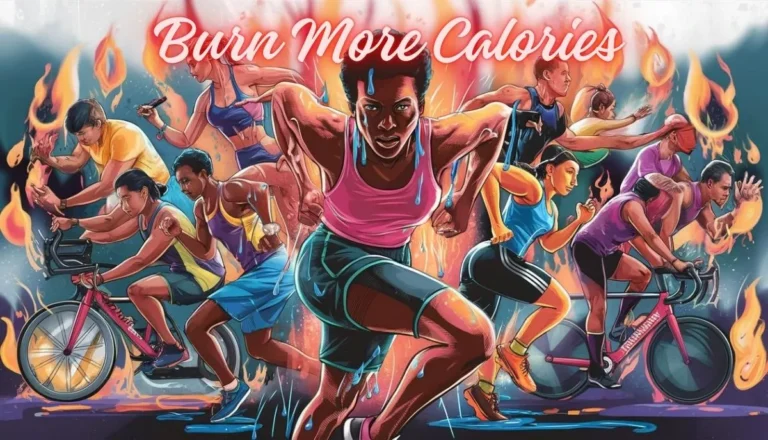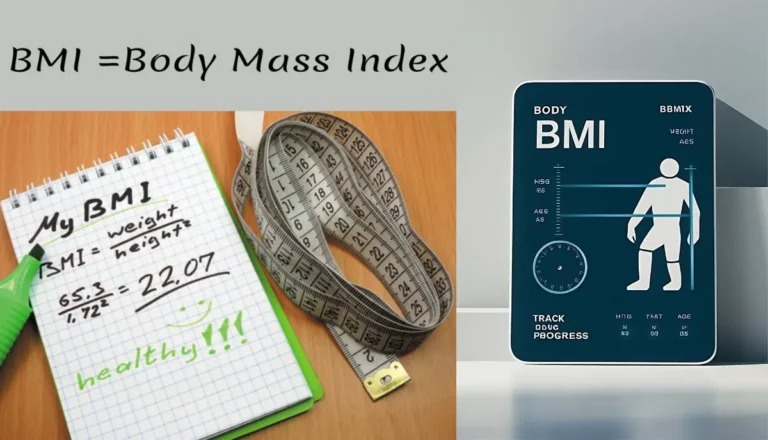Disclaimer: I have affiliate links in this post and receive a commission on any purchases you make at no cost to you. It’s one of the ways I support my site.
Eat more to lose weight! Sounds contradictory. About 70% of adults in the U.S. struggle with their weight, but many don’t know that eating more can help. Adding more nutrient-dense and fiber-rich foods to daily meals can lead to weight loss and better health. This might seem odd, as we often focus on cutting calories, but eating a varied diet can make us feel full and help us manage weight better.

Studies show that a balanced diet fosters healthy eating habits. It should include vegetables, fruits, lean proteins, and whole grains. This method not only helps with weight loss but also makes eating enjoyable. It leads to lasting changes, not just quick fixes. By learning how nutrition affects weight, we can begin a fun journey to better health.
The Science Behind Eating More To Lose Weight
Understanding how caloric and nutrient density work helps with weight management. It lets people make smart food choices for a healthy life and weight control.
Understanding Caloric Density
Caloric density is about how many calories are in a certain amount of food. Foods that are low in calories but big in volume help you eat more without going over your calorie limit. Think of fruits, veggies, and whole grains here.
This way, you can have big meals without eating too much. It’s great for managing your weight.
Role of Nutrient Density in Weight Management
Nutrient density is about how much nutrition you get from your food. Foods high in nutrients give you lots of vitamins, minerals, and fiber. They keep you full and give you energy.
Adding foods like leafy greens and berries to your diet can help with weight control. Studies show diets like the Mediterranean, DASH, and MIND are good for your health. They show how important nutrient-rich foods are for everyday eating.
| Diet | Health Benefits |
|---|---|
| Mediterranean | Lower risk of heart disease, diabetes, and some cancers |
| DASH | Lower blood pressure; decreased risk of heart failure |
| MIND | Emphasizes brain health with leafy greens and berries |
| Nordic | Prevention of stroke and aid in weight loss |
| Intermittent Fasting | Improved metabolism, lower blood sugar, and reduced inflammation |
Recognizing Your Basal Metabolic Rate and Caloric Needs
Understanding how many calories you need is key to losing weight. The basal metabolic rate (BMR) is the number of calories your body burns at rest. It covers about 60%-70% of your daily energy use. Knowing your BMR helps you figure out how many calories you should eat.
The Importance of Knowing Your BMR
Your BMR is the base for figuring out your daily calorie needs. It changes based on your age, gender, weight, height, and muscle mass. For example, people with more muscle need more calories. Knowing what affects your BMR helps you make a plan to lose weight.
Factors Affecting Your Daily Caloric Requirements
Many things affect how many calories you need every day. Here are some:
- Age: As you get older, you might lose muscle and move less, slowing down your metabolism.
- Gender: Men usually have a higher BMR than women because of their size and muscle.
- Muscle Mass: Having more muscle means you burn more calories.
- Activity Level: Working out, especially lifting weights, boosts your metabolism. It raises your calorie needs.
- Dietary Habits: What and how much you eat can change your metabolism.
Formulas like Harris-Benedict or Mifflin-St Jeor can help. They can give you a better idea of your calorie needs. Adding healthy habits can help your metabolism and aid weight loss. These include exercise, balanced meals, and enough sleep.

| Factor | Impact on BMR |
|---|---|
| Age | Decreased muscle mass and activity level can lower metabolism over time. |
| Gender | Men generally have a higher BMR due to greater lean muscle mass. |
| Muscle Mass | More muscle increases calorie requirements to maintain bodily functions. |
| Activity Level | Regular physical activity elevates metabolism, increasing daily caloric needs. |
| Dietary Habits | Balanced diets can aid metabolic health and influence overall energy expenditure. |
Eat More To Lose Weight: How It Works
Losing weight effectively means eating more fiber and protein. Adding these to your diet helps with weight control and boosts health. High-fiber and protein-rich foods make you feel full and cut down on snacking.
Strategies for Eating More Fiber and Protein
Here are some tips to eat more fiber and protein:
- Include legumes (like lentils and chickpeas) in meals, known for their high fiber content.
- Opt for whole-grain options instead of refined grains for added nutrients.
- Consume a variety of fruits and vegetables, which are not only high in fiber but also packed with water, helping one feel full with fewer calories.
- Choose lean sources of protein such as chicken, turkey, fish, and plant-based proteins like tofu and tempeh.
Choosing Nutrient-Rich Foods
Choosing nutrient-rich foods is key to losing weight effectively. Foods high in water content, like fruits and veggies, are low in calories but filling. For example, yogurt and beans are good sources of protein but are not too high in calories.
Switching to snacks like salsa, hummus, and whole-grain cereal helps you eat more high-fiber foods. This keeps your energy up.
Using these strategies makes it easier to control calories without feeling hungry. Eating more protein and choosing nutrient-rich foods helps you lose weight in a healthy way. It leads to a better lifestyle overall.
The Role of Appetite Regulation
Appetite regulation is a complex process. It involves many hormones that affect hunger and fullness. Ghrelin, known as the “hunger hormone,” plays a big part in this system. It’s important to know how ghrelin affects hunger. Also, nutrients, like protein, help control appetite. This is key for managing weight.
The Impact of Ghrelin on Hunger
Ghrelin comes from the stomach and tells the brain to make you hungry. When your body needs more energy, ghrelin levels go up. This makes you feel hungrier. Keeping ghrelin levels in check is key to staying at a healthy weight. Foods that make you feel full can help balance ghrelin levels and control your appetite.
How Protein Helps Control Appetite
Eating foods high in protein can help with appetite control. Studies show that protein is better at controlling appetite than carbs or fats. After eating protein, ghrelin levels drop, making you feel less hungry and more full. Protein also helps your metabolism, which is good for losing weight.

Meal Planning for Effective Weight Management
Meal planning is key to managing weight effectively. By planning meals, you can add healthy fats and eat nutritious foods. This helps balance your energy, reduces cravings, and makes you feel full with smaller portions.
Building Balanced Meals with Healthy Fats
To make balanced meals, fill one-third to one-half of your plate with veggies. Use one-quarter to one-third for protein-rich foods. Add healthy fats from avocados, nuts, and olive oil for flavor and nutrition. These meals help with weight loss by keeping you full and offering many tasty options.
Benefits of Preparing Meals at Home
Cooking at home leads to healthier eating and better portion control. It also keeps you away from high-calorie fast food. Having a variety of recipes keeps meals interesting and meets your nutrient needs. Soups, salads, pasta, and grain bowls are great for a weight loss plan.
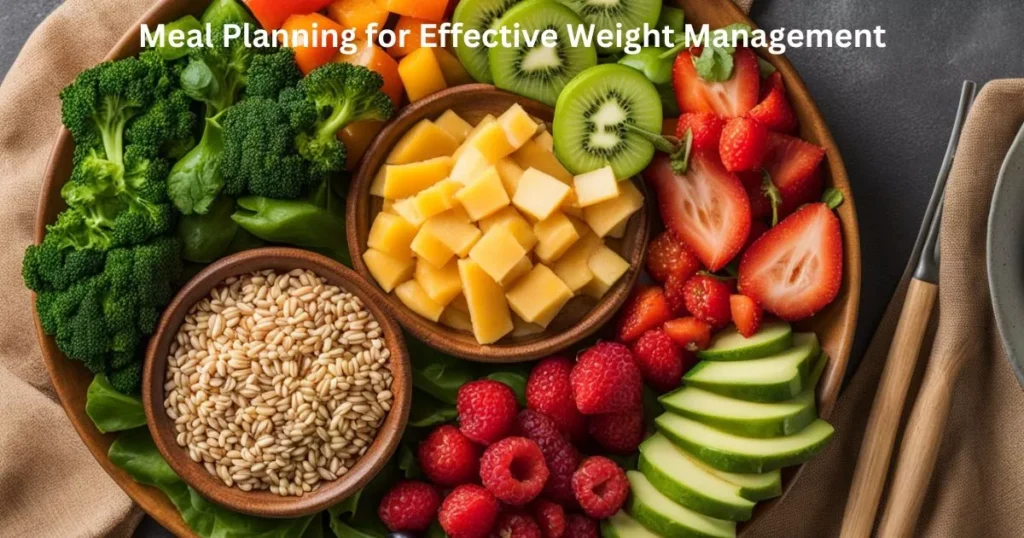
| Day | Meal | Key Components |
|---|---|---|
| Day 1 | Dinner | 4 oz broiled flounder, 2 sliced plum tomatoes, 1 cup cooked couscous, steamed broccoli |
| Day 2 | Dinner | 4 oz chicken breast, barbecue sauce, sautéed spinach, and baked potato |
| Day 3 | Dinner | 4 oz steamed shrimp, baked potato with salsa, 3 cups steamed spinach |
| Day 4 | Lunch | Whole-wheat pita, roast beef, horseradish, and raw veggies |
| Day 5 | Lunch | Fat-free refried beans, cheese, cucumber spears, and cottage cheese with clementines |
| Day 6 | Dinner | Jambalaya with brown rice, corn, turkey sausage, and no-salt-added beans |
| Day 7 | Lunch | Black bean salad, orange slices, red peppers, and salad greens |
Meal planning apps can make planning easier and tailor diets to your needs. Keeping meals safe by storing and reheating them right is crucial. These steps improve your meal planning and help with weight management.
High-Fiber Foods to Support Weight Loss
Eating high-fiber foods is great for those trying to lose weight. Fiber makes you feel full, which can help you eat less. Many people don’t get enough fiber, which is 35 to 50 grams a day. But the average American diet only has 10 to 15 grams a day. A diet full of fiber helps with weight loss and keeps you healthy.
Top Foods Rich in Dietary Fiber
Some foods are amazing for fiber. Here are the best ones:
- Chickpeas: Over 24 grams of fiber per cup.
- Lentils: Approximately 15.6 grams of fiber per cup when cooked.
- Raspberries: Around 8 grams of fiber per cup.
- Pears: About 5.5 grams per medium-sized fruit.
- Bananas: Contain over 3 grams of fiber per banana.
- Broccoli: Provides around 2.4 grams of fiber per cup.
- Avocados: Have 6.8 grams of fiber per 100 grams.
- Apples: Offer roughly 4.4 grams of fiber per medium apple.
How Fiber Helps You Feel Full Longer
Fiber is key for weight loss because it keeps you feeling full. It does this in a few ways:

- Slowing down digestion, which prolongs feelings of satiety.
- Altered gut bacteria species patterns, positively influence appetite and metabolism.
- Reducing the risk of obesity, heart disease, and certain cancers, such as colon cancer.
To get more fiber, focus on eating foods like fruits, vegetables, whole grains, and legumes. Add them to your diet slowly to avoid issues like gas and bloating.
| Food Item | Fiber Content per Serving |
|---|---|
| Chickpeas (1 cup) | 24g |
| Lentils (cooked, 1 cup) | 15.6g |
| Raspberries (1 cup) | 8g |
| Pears (medium) | 5.5g |
| Bananas | 3g |
| Broccoli (1 cup) | 2.4g |
| Avocados (100g) | 6.8g |
| Apples (medium) | 4.4g |
The Importance of Breakfast in Your Diet
Breakfast is key to a healthy life and helps with weight control. Eating a balanced breakfast brings many health perks. These include better memory, focus, and lower risks of diabetes and heart disease. Studies link breakfast to a healthy weight.
Healthy Breakfast Ideas That Help You Lose Weight
Starting your day with a nutritious breakfast helps with weight management. Foods high in protein and fiber work best. Here are some great breakfast ideas:
- Vegetable omelet with whole eggs or egg whites
- Oatmeal topped with fresh fruits and nuts
- Smoothies made with greens, low-fat yogurt, and fruits
- Whole grain cereal paired with low-fat milk
- A banana wrapped in a whole wheat tortilla with peanut butter
Eating 250 to 300 calories for breakfast is a good goal. But, active men might need 500 to 600 calories for enough energy.
Why Breakfast Skippers Struggle with Weight Control
Studies show skipping breakfast makes weight control harder. Skipping this meal often leads to eating more unhealthy foods later. Teens and kids who skip breakfast make worse food choices and do worse in school due to tiredness. This can lead to a higher BMI.
Eating breakfast regularly is linked to better health habits. Over 75% of people who lost more than 30 pounds eat breakfast every day. Making this meal a priority can help with weight control and overall health.
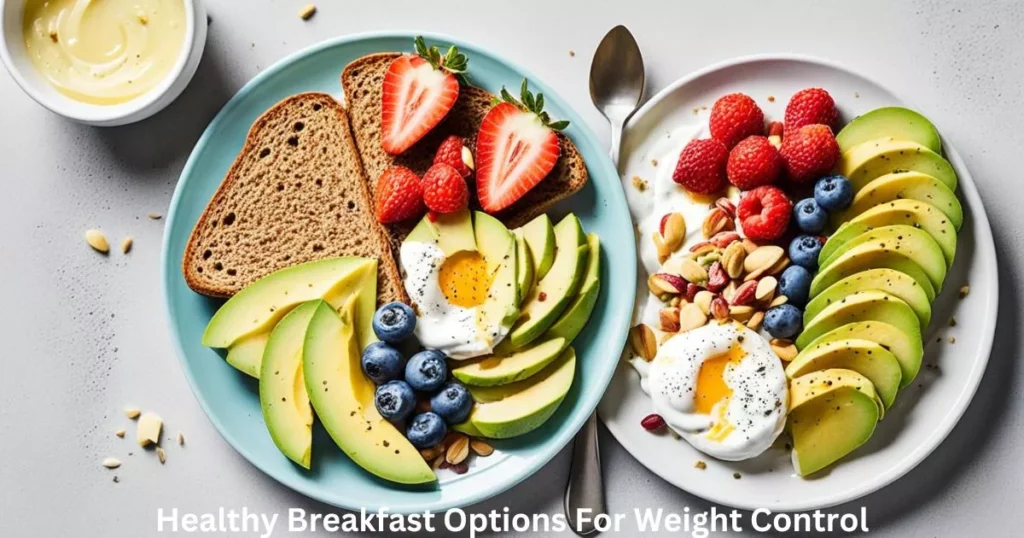
Understanding Metabolism and Weight Loss
Metabolism is the process of turning food into energy in our bodies. It’s key for weight loss because a faster metabolism burns more calories. To boost metabolism and help with weight loss, adding exercise is a big part of the plan.
How to Boost Your Metabolism
There are ways to make your metabolism better:
- Exercise Regularly: Lifting weights builds muscle. It can speed up your metabolism over time.
- Stay Hydrated: Drinking enough water boosts your metabolism and burns more calories.
- Do High-Intensity Workouts: Short, intense exercises can boost your metabolism for a while after you stop.
- Prioritize Protein Intake: High-protein foods can boost your metabolism. Your body works hard to break them down.
The Role of Exercise in Metabolic Health
Exercise brings big benefits for metabolism and losing weight. It helps with:
the following:
- Calorie Expenditure: Exercise helps burn calories, which is important for losing weight.
- Improved Body Composition: More muscle means a higher resting metabolism.
- Better Health: Regular exercise boosts your metabolism. It helps control blood pressure, blood sugar, and fats.

| Activity | Estimated Calories Burned per Hour |
|---|---|
| Walking (moderate pace) | 240-300 |
| Weightlifting | 180-266 |
| Running (6 mph) | 480-600 |
| Cycling (moderate pace) | 400-600 |
Understanding and improving metabolism can help with weight loss. Adding regular exercise to your day not only burns calories but also supports your metabolic health.
Common Misconceptions About Dieting
Many people struggle with dieting because of wrong beliefs. It’s important to know these misconceptions to succeed. Some think that just cutting calories leads to weight loss, but this isn’t always true. It can slow down your metabolism and make you lose muscle.
Switching to a balanced diet full of nutrients is better in the long run. This approach helps build healthy habits.
Why Restricting Calories Can Backfire
Some see dieting as just cutting calories a lot. This can cause problems:
- It might slow down your metabolism, so you burn fewer calories.
- You might start craving more food and could binge eat if you’re too hungry.
- You could lose muscle mass, making it harder to lose weight later.
Finding a balance is important. Instead of cutting calories too much, eat more nutrient-dense foods and stay active. This can lead to better results.
Debunking Popular Diet Myths
There are many diet myths out there that mislead people. Some common ones are:
- Thinking low-fat or fat-free foods are always better for you.
- Believing eating after 8 PM makes you gain weight.
- Thinking fad diets are a good way to lose weight for good.
None of these ideas are supported by science. Eating healthy balanced meals is key to losing weight. Crash diets or slimming pills might work for a short time but aren’t sustainable. Knowing these myths helps you make better choices for managing your weight.
Maintaining Long-Term Weight Loss
Keeping weight off for good can be tough. Many people find it hard to keep their weight lost over time. About 70 percent of people can’t keep off a 10 percent weight loss for two years. This shows we need good strategies for tracking what we eat and how active we are.
Keeping an eye on what we eat and our weight helps us see what works and what doesn’t. This can make it easier to stay on track. It’s important to notice patterns and any setbacks.
Tracking Your Food Intake and Body Weight
Using tools like food diaries or apps can help track what we eat. These tools let us record what we eat every day. This helps us understand our eating habits better.
Studies show that people who keep weight off exercise about 40 minutes a day. Exercise is key to keeping weight off. Adding healthy foods to our diet after losing weight helps us stay successful without gaining back the weight.
Identifying Barriers and Staying Motivated
Knowing what stops us can help us stay on track with weight loss. Using strategies like exercise or meditation instead of eating can help. Setting realistic goals and joining groups for support can also help, as seen in the National Weight Control Registry.
About 55 percent of those in the registry used programs to lose weight. Regular exercise, like moderate activities or brisk walking, is key to staying motivated and managing weight over time.
| Weight Loss Strategies | Benefits |
|---|---|
| Food Intake Tracking | Increases awareness of dietary choices and promotes healthier eating habits |
| Regular Exercise | Critical for maintaining weight loss; recommended 40 minutes of activity most days |
| Setting Realistic Goals | Helps in sustaining motivation and focus on achievable outcomes |
| Using Support Systems | Encourages accountability and sharing of weight loss journeys |
Conclusion
Understanding nutrition and satiety is key to healthy weight loss. A lasting diet plan comes from eating nutrient-rich foods and knowing your caloric needs. Personalized nutrition advice is crucial for success.
Traditional weight loss tips often fall short. Saying “eat less” or “move more” doesn’t help everyone. Working with experts, like dietitians, can improve eating habits and lifestyles. They focus on stress and sleep, which are important for weight control.
Changing from a short-term diet to a lasting lifestyle change is powerful. Focusing on health, nourishment, and well-being makes a big difference. It helps people connect with their food and lifestyle in a meaningful way. This approach helps achieve weight goals and enjoy all the food available.
Frequently Asked Questions
Q: How can eating more help with weight loss?
A: Eating more of the right foods can help with weight loss. It can boost your metabolism and keep you full longer. Plus, it prevents feeling deprived. This helps you consume fewer calories overall, which supports weight-loss goals.
Q: What types of foods should I eat to lose weight?
A: You should focus on whole foods like vegetables, fruits, whole grains, and lean proteins. These foods are lower in calories and higher in nutrients. They help you feel full while eating fewer calories than your body needs to maintain its weight.
Q: Should I be concerned about eating too much protein?
A: It’s important to consume enough protein to maintain muscles and feel full. But, too much can lead to excess calories. Aim for a balanced diet that includes a moderate amount of protein.
Q: Can eating too little affect my weight-loss efforts?
A: Yes, eating too few calories can hinder your weight-loss efforts. It can slow down your metabolism and lead to muscle loss, which makes it harder to lose body fat. Ensure you eat enough to fuel your body’s functions.
Q: How many calories should I consume per day to lose weight?
A: To lose weight, you generally need to consume fewer calories than you burn. A common approach is to cut 500 calories a day from your maintenance intake. This can help you lose about a pound a week.
Q: What role do whole grains play in weight loss?
A: Whole grains are an excellent choice for weight loss because they are high in fiber and nutrients, which can help you feel fuller and aid in digestion. Including whole grains in your diet can help you eat fewer calories while feeling satisfied.
Q: How can I avoid eating too little while still losing weight?
A: To avoid under-eating, eat nutrient-dense foods. They provide vitamins, minerals, and energy without extra fat and calories. Also, don’t skip meals, and monitor your hunger levels to make sure you’re eating enough to support your body’s functions and activities.
Q: What is the impact of consuming saturated fat on weight loss?
A: Small amounts of saturated fat can be part of a healthy diet. But, too much can increase calorie intake and cause weight gain. It’s best to limit foods high in saturated fat and instead opt for healthy fats like those found in nuts, seeds, and avocados.
Q: Can weight training support weight loss by eating more?
A: Yes, weight training can support weight loss because it helps build muscle, which in turn burns more calories even at rest. Combining weight training with a healthy diet can help you lose fat and keep muscle. This will lead to better, lasting weight loss.
Q: Why do I feel fuller when I eat whole foods?
A: Whole foods are typically rich in fiber, water, and nutrients, which help to keep you full. Their high volume and nutrients slow digestion. They provide lasting energy. This helps control calories and lose weight.



